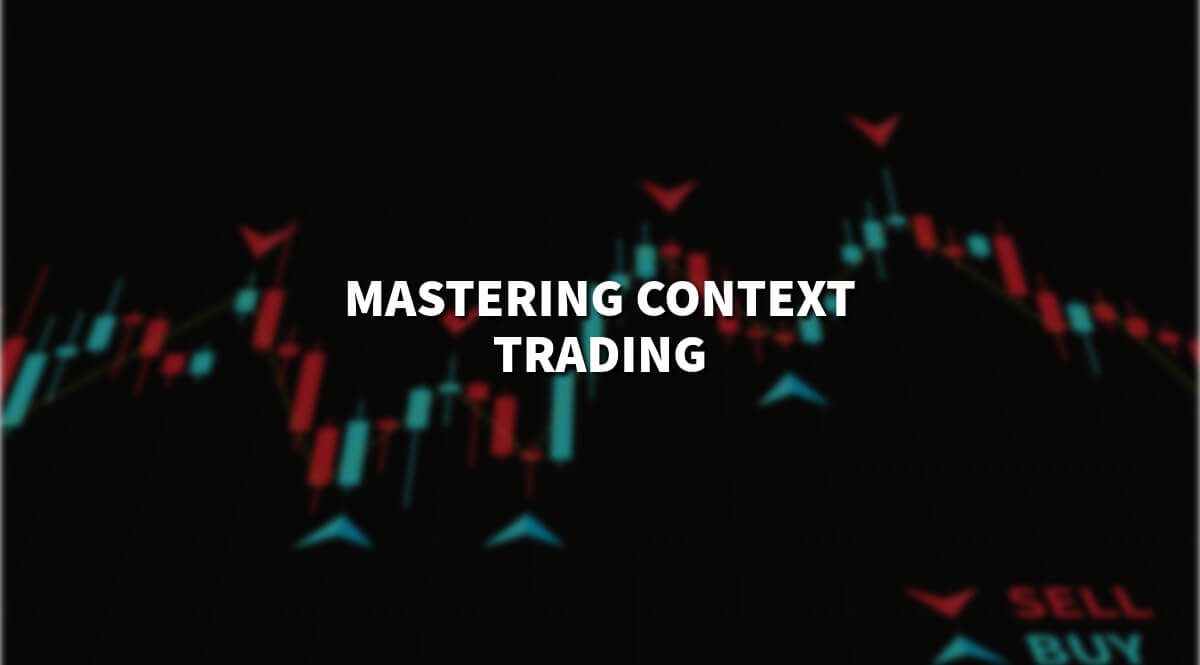Mastering Context Trading: Strategies for Informed Investing
Have you ever been eager to learn about context trading, a strategy for making informed investment decisions, and master it as a true professional?
Are you interested in understanding marketing trends, making smart trading decisions, and more?
Firstly, understanding the context in the sphere of your interest is mandatory for huge success. Context refers to the special factors that shape either the environment or setting in which something happens or just exists.
Traders usually, utilize patterns, price action information, and news to make decisions in US markets, Nifty, and breaking indicators.
So, it’s not quite easy to get all the basic market context trading understanding. We need to dig deeper to get all the crucial information about it.
Let’s start with the basics of the context trading, before we proceed to some more interesting information about it, shall we?
What is context trading exactly?
The trading context includes gathering valuable insights into the following things:
Prevailing trend
Volatility
Market architecture
Present trading sentiment
Momentum
The overall mood of investors and traders.
This information is not just important, it’s empowering. Having a clear insights of the context trading is able to improve any kind trading strategy. It can also provide you a much olid grasp of the current market trends.
Context trading is a trading strategy that determines the best times to trade or not trade. It also means which entries are smart to take and which are not.
Understanding context trading
Traders worldwide think trading involves deciding when to buy or sell and setting goals and limits. The context means much more than that.
There are certain context rules that traders should follow when applying context trading. These rules, in addition to well-defined position sizing and risk management rules, can help traders make more informed decisions.
For example, one context rule might be to avoid trading during high volatility times. The main reason for that is that it could increase the risk of losses.
One example is when you examine all the choices a strategy offers. Some options need to be revised in specific circumstances. Refining your strategy is the result when you identify and avoid hese conditions.
Identifying Profitable Trading Setups
What is also interesting to note when mastering context trading is to identify profitable trading setups properly. You might encounter trading scenarios that don’t provide a net benefit, thus prompting you to skip all of these setups.
Your new strategy will be 100% focused on picking the right setups, especially with a greater chance of increasing profits money, which all result in improved results.
Keep in mind crucial factors that are able to affect your trading success. One of these factors is evaluating the initial momentum before executing a trade.
Strong momentum, in the context of trading, refers to a significant and sustained price movement in a particular direction.
This usually means a trade will be successful, as it indicates a strong trend. On the other hand, little movement, or weak momentum, may indicate a trade is not worth it, as it suggests a lack of market interest or direction.
What does effective trading require?
Effective trading requires more than you think and just making entries. It is, without any doubt, vital to understand the strategic context for many reasons. Numerous professional traders focus solely on entry rules.
They’re also prone to overlook the broader context. Nonetheless, a true trading edge includes contextual insights into your strategy.
What are the essential elements of trading strategy context?
To improve your chances of success in context trading, we advise you to consider some of all of these impactful elements:
Trading Time: Ask yourself: “Does the timing of orders influence the overall market performance?”
Market Trends: Get the strength and presence of all the present trends.
Price Dynamics: Be analytical regarding price movements prior initiation of a trade.
Economic Impact: Reflect on the effects of economic news or earnings reports.
Asset Selection: It is crucial to justify why some specific assets are chosen at particular times.
Recent Activity: Learn about the price movements and your approach to them.
Market Conditions: Determine if pre-trade market conditions are kinda “choppy”. Also, it would help if you defined ‘choppy’ for your context trading strategy.
Historical Levels: Consider if nearby peaks and troughs could affect outcomes.
Trading Habits: Reflect on personal trading tendencies to avoid overtrading.
Strategy Adaptation: Prepare to adjust strategies if market conditions shift during a trade.
Directional Trends: Important for swing traders since most stocks align with major indices.
Risk/Reward Evaluation: Match potential returns against the risks from your entry point and stop loss.
Mastering these factors allows you to customize your approach, improving the precision and effectiveness of your strategy.
What is the core element of Strategy Development?
Creating a strong trading plan goes beyond just making trades; it involves understanding how various factors impact your trades.
Success in trading demands analyzing your trading patterns and creating specific context rules. For this reason, traders need to understand and utilize it properly since it has a huge success in a competitive trading environment.
With the great alignence of your strategy with real-world conditions, the chances of increased profitability will be there.
Conclusion
Context trading is, without any doubt, crucial if you want to become a better professional in this industry and increase chances of success.
This type of trading includes propper analization of market trends, sentiment, along with economic factors to strategically time trade.
Regardings traders, they need to have a clear focus on key market dynamics, such as volatility and initial momentum.
The main reason for that is that it enables you to fine-tune your strategies and potentially boost your profitability, giving you a brighter outlook on your trading journey.
The post Mastering Context Trading: Strategies for Informed Investing appeared first on FinanceBrokerage.
































